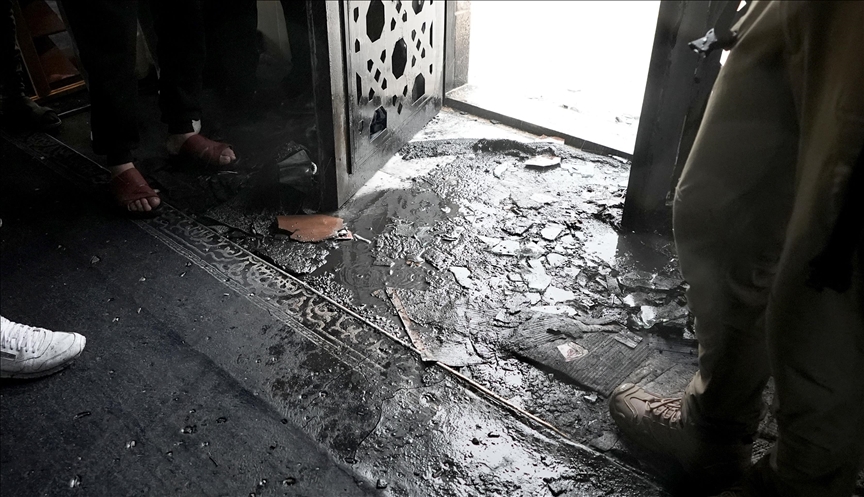Glimpse of life in Gaza’s Shejaiya neighborhood
GAZA CITY, Palestine
Palestinians in the ravaged Shejaiya neighborhood in eastern Gaza City face immense difficulties trying to survive amid a lack of basic services, food shortages, a water crisis and infrastructure destruction as the Israeli onslaught enters its 10th month.
Abu Mohammad Hajila, 44, sits on the rubble of a destroyed residential building in the neighborhood, contemplating the extensive damage caused by Israeli airstrikes and ground operations since the beginning of the assault on the Gaza Strip.
With his wife, Samaher Hajila, 40, he gathers wood and paper to start a fire, salvaging what he can from the remains to use in their daily lives.
The food shortage crisis in Gaza City and northern Gaza is worsening, threatening lives due to the ongoing war amid an intensified Israeli blockade, which limits the already scarce supplies.
From June 28 to July 10, the Israeli army conducted a ground operation in Shejaiya, resulting in hundreds of Palestinian casualties and massive destruction.
On July 11, Gaza’s Civil Defense declared the area an “uninhabitable disaster zone.”
Facing death
“Our lives are filled with fear; we live under the constant threat of death,” said Mohammad Hajila.
He and his family suffer from severe shortages of food, medicine and water. “Hunger is prevalent in the area, and we suffer from psychological pressure, stress, and lack of water, food, and medicine,” he said.
He explains that his wife developed splenomegaly — an enlargement of the spleen — and hepatomegaly, an enlargement of the liver, from inhaling smoke while starting fires to cook, and the family cannot afford her treatment.
“The neighborhood has turned into a wasteland, with few inhabited houses. We live in constant fear, sleeping and waking up with anxiety even in our sleep,” he said.
His wife describes their difficult lives and plight.
“We have been displaced three times like many others in Gaza. Now, we live in a commercial space beneath a partially destroyed home.”
“We live in a disaster zone, surrounded by destruction. The neighborhood has become frightening due to the absence of residents,” she told Anadolu.
Living in dire conditions
In another nearby area, Abu Mohammad Al-Harazin, 52, sits with his family near their partially destroyed home trying to recall beautiful memories before the war.
“No one from other countries cares about us. We live in fear, anxiety, and horror, with food and water shortages, and we have suffered through this genocidal war. We search for a piece of bread and struggle with extremely high prices,” he said.
“Our home has been bombed multiple times, and we currently live in dire conditions inside it. We have managed to rehabilitate a small space despite the significant destruction,” he added.
Israel, flouting a UN Security Council resolution demanding an immediate cease-fire, has faced international condemnation amid its continued brutal offensive on Gaza since an Oct. 7 attack by the Palestinian resistance group, Hamas.
Over 39,200 Palestinians have been killed, mostly women and children, and over 90,400 injured, according to local health authorities.
Over nine months into the Israeli onslaught, vast tracts of Gaza lie in ruins amid a crippling blockade of food, clean water and medicine.
Israel is accused of genocide at the International Court of Justice, which ordered it to immediately halt its military operation in the southern city of Rafah, where more than 1 million Palestinians had sought refuge from the war before it was invaded on May 6.
*Writing by Mohammad Sio
Anadolu Agency website contains only a portion of the news stories offered to subscribers in the AA News Broadcasting System (HAS), and in summarized form. Please contact us for subscription options.




